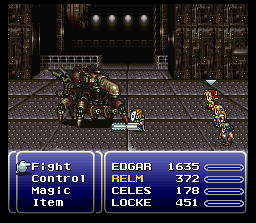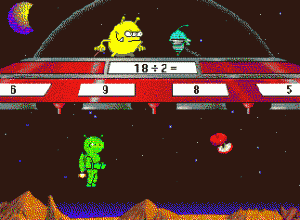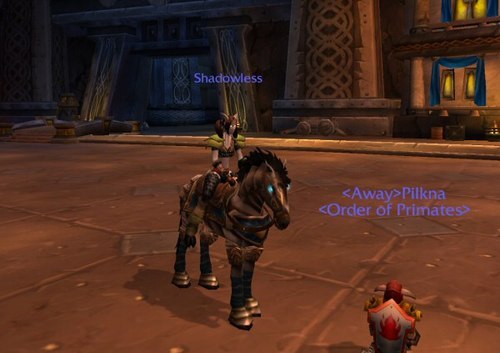Trending
Opinion: How will Project 2025 impact game developers?
The Heritage Foundation's manifesto for the possible next administration could do great harm to many, including large portions of the game development community.

Featured Blog | This community-written post highlights the best of what the game industry has to offer. Read more like it on the Game Developer Blogs or learn how to Submit Your Own Blog Post
Lessons I've learned from teaching kids for almost a decade and designing games for them for a shorter period.

For nine years I taught a Youth Theatre Workshop as a summer job in Bermuda with a very good friend of mine, Daniel Frith. I was eventually lucky enough to get a job designing games aimed at a similar age-group and my experience translated pretty well. In this article, I've collected some of the things I learned working with kids, including some of my experiences designing educational games. Okay, here we go.
Kids are smart. Seriously.
Starting with a strong one here. In fact, if you don't have time to read the rest of this article, just absorb this one. We often treat kids like they have no idea what they're doing, but they really do see the world a lot more clearly than we give them credit for. Don't dumb down your mechanics because someone tells you "kids won't get that". I firmly believe if you raise the bar, the kids will meet it.

How old were you when you understood this?
Don't believe me? Think back to how freaking complicated the combat system was in Final Fantasy VI and remember how you mastered it when you were young. I'm only just playing this game for the first time now, (I know, shame on me) and I can't imagine a kid grasping this stuff, because I can barely grasp it, but you did, remember?
Let me clarify a bit here, because there's a difference between a complex game or system and one that is complicated. Kids DO need the rules spelled out for them, but only so they can understand why the game is doing what it is doing, and what is expected of them. Menu systems need to generally do the best they can to lay out what is important and hide what isn't. Final Fantasy is actually a pretty crummy example of this, to be honest.
All kids need to master a complex system is two things: Time and Desire. Those come into play in my next point.
Give kids a safe place to fail
I designed a game for kids about saving polar bears and understanding their carbon footprint. A big part of the design was customising your arctic buggy by selecting different parts. Each part had a CO2 emissions component that was clearly shown as a thermometer on the side of the screen while you built your little buggy.
So while you drive around in your buggy, the ice tiles start cracking and melting and eventually, if you don't move fast enough, you can't get to the polar bears because there's nothing to drive on and you lose. A lot of kids lost at first, but they started to learn the connection between the buggy parts and the ice melting pretty quickly. That "a-ha!" moment when it all clicked was because they had failed a few times. If we had held their hand throughout the process, I don't believe they would have learned the lesson we wanted them to learn.
This ties into how smart kids are. If kids are motivated to continue through a failure, they will eventually master your complex system. This moves pretty smoothly into my third point.
Motivate kids to seek out mastery
Kids can smell your design BS a mile away. Hey, come back! It's totally okay! What this means is that kids won't engage in something you want them to just because you put it on the screen. This is really the #1 problem with educational games or (barf) "edu-tainment".

What kind of advanced alien species needs my help with this!?
Remember Math Blaster? Remember how much fun you had learning math because you were a stupid kid and thought you were just playing games but secretly you were learning? Of course you don't. You suffered through the learning parts to get at the sweet gamey middle you actually wanted. Gating the fun stuff with the stuff you want/need them to see is a sure fire way to get kids to shut off.
What you want to do is motivate kids to want to master a particular system. If the path to mastery includes learning, kids will happily do so, for the same reason solving puzzles in an adventure game makes you feel like a rock star: You saw a need, and were able to fill in the blanks with your smarts.
I worked on a game for kids to teach the basics of the Six Simple Machines. They were hidden in carnival games scattered around the environment. To "win" the games, you really had to understand how to use the simple machines to your advantage.

There's a big difference between Learning to Read and Reading to Learn.
The only way to do this was to find and read texts placed nearby. I was adamant that no artificial gating system be used such as turning the machine off until the book was read. If a kid can brute force it, he or she has still learned something relating to the subject through trial and error.
In this way, kids wanted to learn about levers and fulcrums so they could be as good as possible at the Test Your Strength game. No one forced them to read, they sought it out on their own, and actually digested the educational component to master the non-educational component, but parsing it all as one thing.
Respect kids fun
Just because they aren't playing it the way you expect, doesn't mean you should restrict or artificially limit what they do in the space. This is one I have to remind myself of often, even to this day. Kids are incredibly adept at making their own fun with the tools you give them.
In one game I worked on, kids weren't using the big obvious steps to get to the top of the giant slide in order to slide down. They were having more fun hopping onto a barrel, then onto the roof of a ring-toss booths, across several other booths and finally to the top of the slide.
I didn't get this. I didn't understand why they were not just using the stairs, "They're right there! They're just right in front of them! Do they hate stairs? Why are they doing this!?" my inner monologue spat. We considered putting in invisible blockers to deter it, moving the environment objects to prevent it. For some reason, we really wanted kids to use these stupid stairs. We put them in, kids better freaking use them. I really had to step back and question it. We eventually decided to just let them have fun. It's a game, after all.
Next time someone brings up a "we gotta change X, players are just doing this activity over and over", question your initial instinct to limit that behavior.
Okay, here is where my caveat goes. Players will do exactly what the game tells them to do, even if it isn't fun. It's really weird but given the choice, we would rather win a game than have fun. If players are doing the same activity over and over again, it might be okay to leave it in if players are having fun doing it. If they're just breaking the system, if that one thing they're doing is an overpowered move that renders other options moot, then for goodness sake, change it.
Second caveat: Don't change an overpowered option by limiting players. Make the other options as attractive.
Kids can understand anything if it matters to them (and if they don't feel patronised).
Last one, although I could easily go on and on. This one is pretty universal, and ties into every point mentioned so far. A lot of complex ideas that we assume kids can't or won't understand are just not being framed correctly to matter to the kid. Stuff like delayed gratification, that we consider a pretty big personal growth milestone, is actually relatively easy to get kid buy-in on. The quickest way to alienate a kid is to treat them like a kid, as if that means something in a game. Remember: we're all babies when we enter a virtual world for the first time.
For teaching something like delayed gratification, you need to find a way to make that matter to the kid. Is it a new piece of clothing they can show off to their friends in a virtual world? Enough currency to buy a mount in World of Warcraft?

You kids today don't know how long it took to farm this gold. :(
Don't assume a kid is going to care about an issue framed for an adult, but don't present it to the kid in a manner that says "hey, you're probably too dumb to really get why this is important, so let me explain it to you." His or her desire for that sweet mount is going to make it very easy to understand the concept without you walking him through it like they're opening their first bank account.
Thanks for reading! I hope some of these thoughts translate to your own work, regardless of the age group.
Read more about:
Featured BlogsYou May Also Like